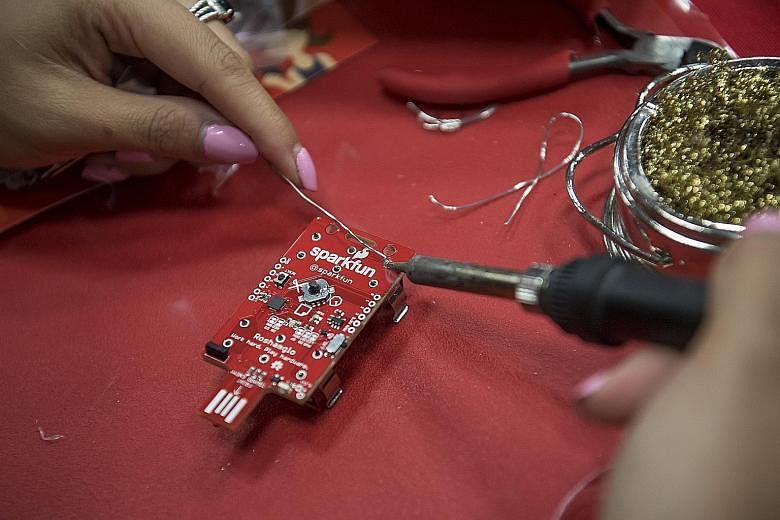WASHINGTON • An Ohio man claimed he was forced into a hasty window escape when his house caught fire last year. His pacemaker data obtained by police showed otherwise, and he was charged with arson and insurance fraud.
In Pennsylvania, the authorities dismissed rape charges after data from a woman's Fitbit contradicted her version of her whereabouts during the 2015 alleged assault.
Vast amounts of data collected from our connected devices - fitness bands, smart refrigerators, thermostats and automobiles, among others - are increasingly being used in legal proceedings across the United States to prove or disprove claims by people involved.
In a recent case that made headlines, the Arkansas authorities sought, and eventually got, data from a murder suspect's Amazon Echo speaker to obtain evidence.
Meanwhile, the Federal Trade Commission in February fined television maker Vizio for secretly gathering data on viewers collected from its smart TVs and selling the information to marketers.
And the maker of the smartphone-connected sex toy We-Vibe agreed this month to a court settlement of a class-action suit from buyers who claimed "highly intimate and sensitive data" was uploaded to the cloud without their permission - and shown last year to be vulnerable to hackers.
Trying to come to grips with data collected, stored and analysed by all these devices can be daunting.
"When one looks at the expectation of privacy today it is radically different than it was a generation ago," said Mr Erik Laykin, a digital forensics specialist at the consultancy Duff & Phelps, and author of a 2013 book on computer forensics.
"Privacy is dead," he said.
Mr Laykin has consulted or testified in cases of insurance fraud, divorce and other legal proceedings where digital evidence can be relevant. He said the "always on" nature of "Internet of Things" devices means huge amounts of personal data is circulating among companies, in the Internet cloud and elsewhere, with few standards on how it is protected or used.
"The net result of these technologies is that we are forgoing our personal privacy and our personal autonomy and even sovereignty as humans and relinquishing that to a combination of state, harvesters of big data, omnipresent institutions and systems."
A report last year from Harvard's Berkman Klein Centre pointed out the range of new connected devices that can yield evidence for law enforcement, "ranging from televisions and toasters to bedsheets, light bulbs, cameras, toothbrushes, door locks, cars, watches and other wearables", which "are being packed with sensors and wireless connectivity".
"The audio and video sensors on IoT devices will open up numerous avenues for government actors to demand access to real-time and recorded communications," the report said.
Dr John Sammons, a Marshall University professor of digital forensics and a former police officer, said this new abundance of evidence can be good for law enforcement if investigators can find relevant data. "You have to be aware it's even there," he said. "Most police officers would not even think to look at a Fitbit or a thermostat."
Another problem is the sheer volume of information and computing resources needed to obtain specific data, often requiring weeks of computing time.
Dr Sammons presented research on use of connected cars this year at the American Academy of Forensic Sciences, saying newer vehicles with improved connectivity offer "a significant new source of potential evidence" for both criminal and civil litigation.
AGENCE FRANCE-PRESSE

